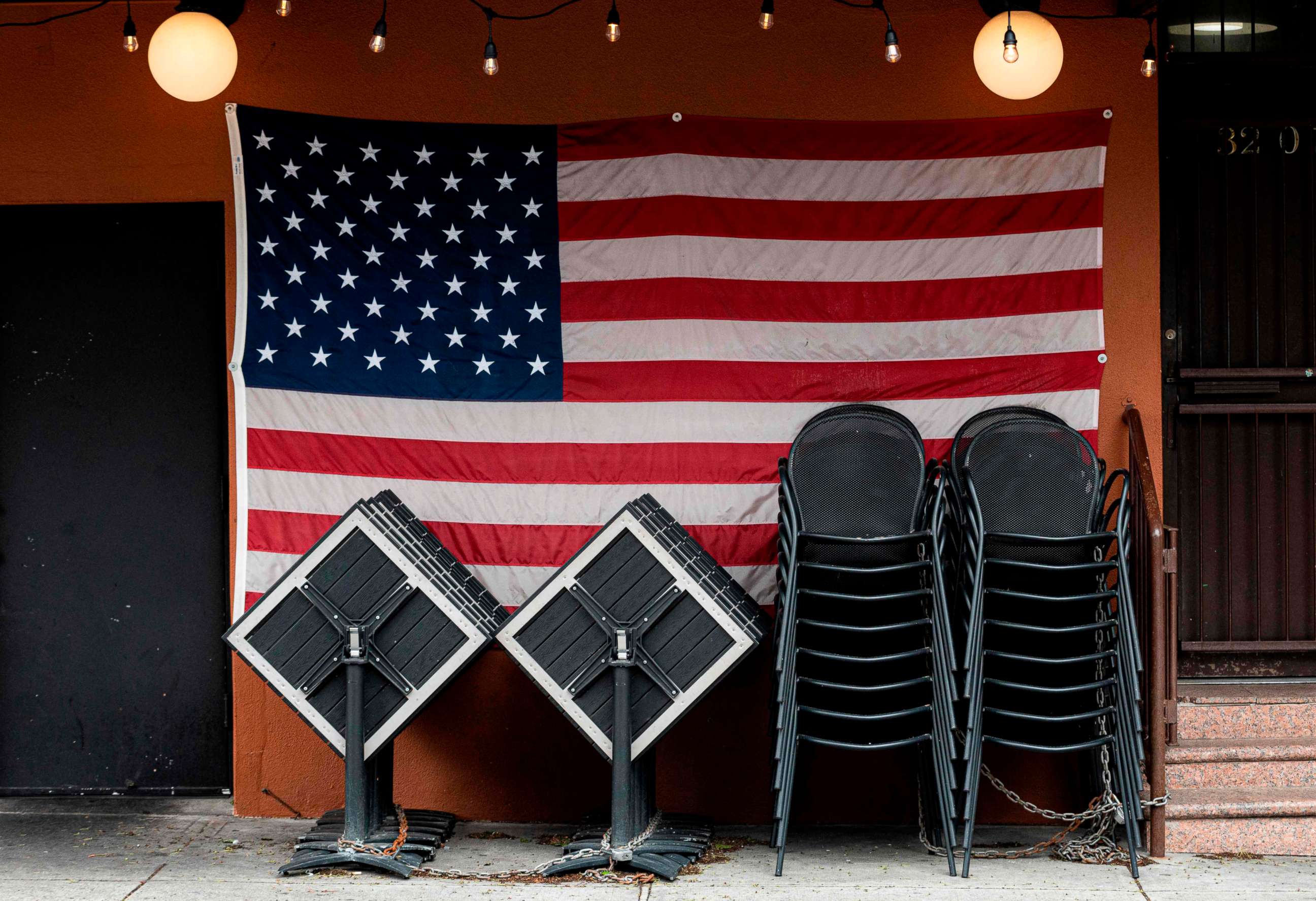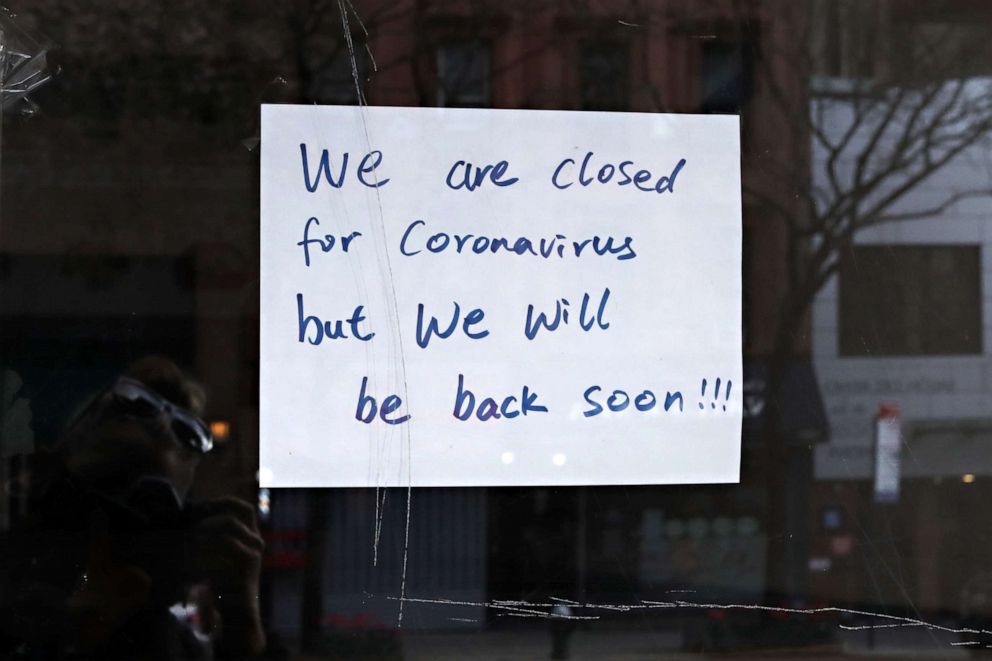Much-anticipated 'forgiveness' guidelines for PPP loans set to be unveiled
Key senators say small business loan "forgiveness" guidelines are due very soon.
The Treasury Department and Small Business Administration are preparing to release much-anticipated forgiveness guidelines for borrowers who were able to secure a Paycheck Protection Program loan -- a crucial road map for those who hope to have their federally-backed loan turn into a grant -- according to Senate Small Business Committee Chairman Marco Rubio and his Democratic counterpart, Ben Cardin of Maryland.
“I think we’ll have the application and the guidelines as early as today,” Rubio, R-Fla., told ABC News Wednesday night, saying he offered some guidance on simplifying the application that borrowers will have to submit in order to have their loans considered for forgiveness.
“There was also some misunderstanding about overlap between the emergency loans and how that would be treated,” Rubio said, adding that there could also be “some small, additional flexibility” on the requirement that employers retain employees at pre-pandemic levels for eight weeks under the program, a near-impossibility for many businesses still shuttered due to COVID-19.

Rubio said he and Cardin spoke with Treasury Secretary Steven Mnuchin Tuesday, with Cardin saying he was shown a draft of the guidelines, which are also needed by lenders who regard them as key to getting final reimbursement from SBA for loans disbursed to successful PPP applicants.
SBA determined early on, in broader guidance, that PPP loans designed to help businesses keep paychecks flowing for eight weeks, would be forgiven if 75% of the loan proceeds were used for payroll costs, and 25% was used for overhead expenses, like mortgages and rent payments, as well as utility costs. Lawmakers on both sides of the aisle said there needs to be flexibility in that bifurcation to account for businesses with high operating expenses, but Rubio told ABC News Wednesday that there is "less agreement" on exactly how to remedy the problem.
Tune into ABC at 1 p.m. ET and ABC News Live at 4 p.m. ET every weekday for special coverage of the novel coronavirus with the full ABC News team, including the latest news, context and analysis.
In addition, the Treasury Department told loan recipients early on, “The amount of loan forgiven is reduced when a business owner decreases full-time employee headcount, if salaries are decreased by more than 25%.”
But those owners who received the first funded PPP loans are nearing the end of that eight-week period, and they -- and their lenders --- want to know the details of what will be required to have SBA forgive the loans - and repay the banks and other non-bank institutions.

“We still do not have guidance on this from SBA and business owners, in many cases, are worried about how exactly to use these funds since there were non-payroll uses authorized by Congress,” a banking industry source told ABC News. “It’s crazy. Banks need this guidance. Businesses need it. It’s like we’re in a state of suspension - waiting.”
The lack of clear guidance is why a number of loan recipients are fearful of using the money. They do not want to be on the hook for a loan; they simply cannot afford to pay back, even at the low-interest rate of 1% over a two-year period. And according to the most recent Treasury guidelines, small business owners who received a PPP loan have until May 14 to return it without penalty; another reason some are closely watching for the guidance.
“When somebody from the federal government - you know the old expression - says, ‘I'm from the federal government, I’m here to help you’ - people don’t trust the federal government,” said Sen. John Kennedy, R-LA., who said he’s heard from many business owners who are deeply frustrated with the program’s lack of clear guidance.
“A lot of my businesses and my bankers are very nervous that not so much progress but the bureaucracy will double back on them and say, ‘We know what we said to you then, but this is now.’ I would really love the Administration and the Department of Treasury to address that. That’s wrong. That’s immoral,” said Kennedy.
Naomi Pomeroy, the owner of Portland-based Beast and Expatriate, said she received a PPP loan and was told by her banker to expect forgiveness guidance soon. That was near the end of April.
Pomeroy had to lay off her entire staff in March due to the pandemic and does not know when she will be able to open her 26-seat restaurant, given social distancing concerns, a factor that made her wonder if the PPP loan was really a good fit.
“It’s very frustrating and just about impossible to use,” Pomeroy said of PPP.
She is also part of a coalition of independent restaurant owners asking that Congress provide a much-needed lifeline to her industry in the form of a $120 billion stabilization fund. The grant amounts would be based on the level of devastation per business, and be targeted only to independent restaurants, not big chains or publicly-traded companies.
Emmett Soldati, owner of Teatotaller, a coffee shop in Somersworth, New Hampshire, who has documented his travails with PPP on Twitter, said he does not know how the requirement to rehire within eight weeks of a loan being funded is supposed to work for his business.
“If you are a restaurant owner like me, you may be pushed to either compete w/ federal unemployment (only to have to cut your staff's pay when it runs out??) or immediately hire folks who aren't on unemployment and hope it serves *some* business objective,” tweeted Soldati.
Some desperate business owners have not applied out of fear, even though PPP still has federal funds available.
Nina Compton, owner of Compère Lapin and Bywater Bistro in New Orleans, had to close both of her award-winning restaurants and said she does not know what she and her husband are going to do.
“It broke my heart,” Compton said, “We’ve been through Hurricane Katrina, the BP oil spill. We’ve been asked, ‘How do we survive this’? We don’t know, frankly ... Things like the PPP, my husband and I looked into that. It doesn't work for us. The origin of the loan - eight weeks to hire people back. I also think getting the forgiveness will be impossible.”
Experts say many questions about tax implications remain.
“The record-keeping and accounting to keep up with this is pretty daunting. The small businesses I advise, I’ve encouraged them to put this in a totally separate account,” said Michael Burcham, a professor at Vanderbilt University’s Owen School of Management.
“This is going to be almost a guilty until proven innocent situation. You’re going to have to have some arduous accounting,” said Burcham, adding, “Do you remember what you spent eight weeks ago? Is it in a format that our government might want?”
Those in the restaurant and hospitality business, among the hardest hit in the pandemic, are struggling to make PPP work for them and pleading with Congress to make legislative changes to provide flexibility so that more borrowers have a hope of complying with forgiveness standards.
“In other words, small businesses who have kept or who re-hire their entire workforce are rewarded while those who can’t are punished. The fact of the matter is, that many who can't bring back their workforce are those who have been hurt the most,” Mat Sorensen, CEO and Attorney at Directed IRA & Directed Trust Company, recently wrote in Entrepreneur online magazine.
Sens. Rubio and Cardin said Wednesday that they plan to craft a bill to extend the eight-week period, though neither was yet able to say what the change might be.
In the House, the newly-introduced $3 trillion coronavirus relief bill extends the requirement for employees to be rehired and remain on payroll from eight weeks to 24 weeks, but Senate GOP leaders have made clear that the Democrats' bill is dead on arrival in their chamber.
Though the appetite for bipartisan compromise - that resulted in the creation of the historic PPP program in record time - has evaporated in recent weeks, senators in both parties said legislative action to fix PPP was a must.
“Absolutely. I’ll look at it. We need to fix this,” said Sen. Kennedy, who is an ardent supporter of his leadership's plan to pause massive federal spending to see how past funding efforts have played out. "This is different, though. We need to do something to help."
What to know about coronavirus:
- How it started and how to protect yourself: Coronavirus explained
- What to do if you have symptoms: Coronavirus symptoms
- Tracking the spread in the U.S. and worldwide: Coronavirus map



